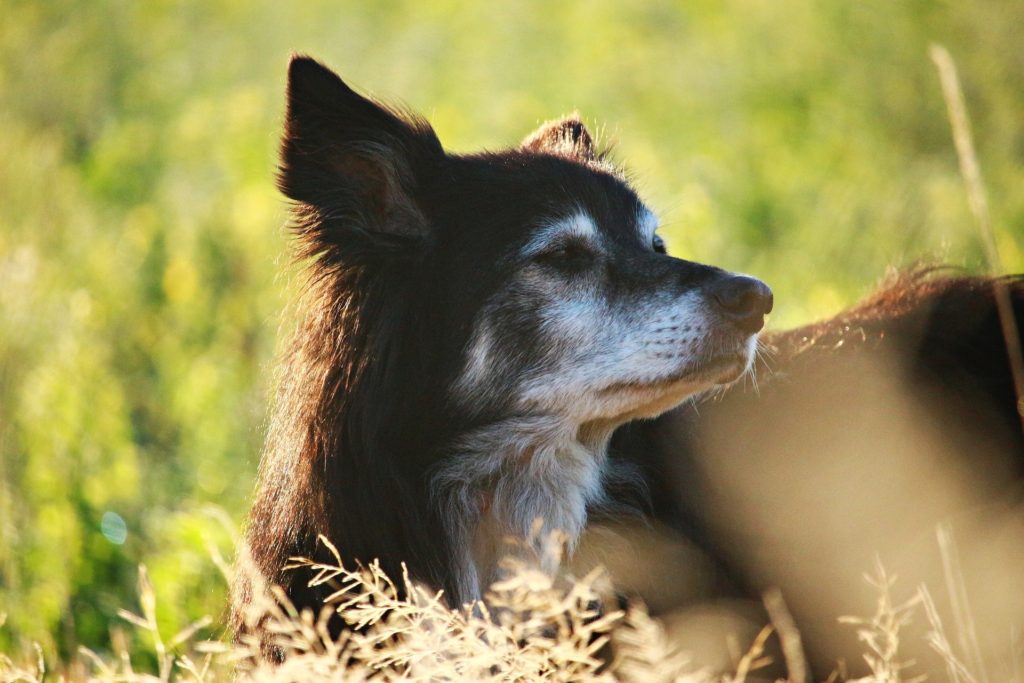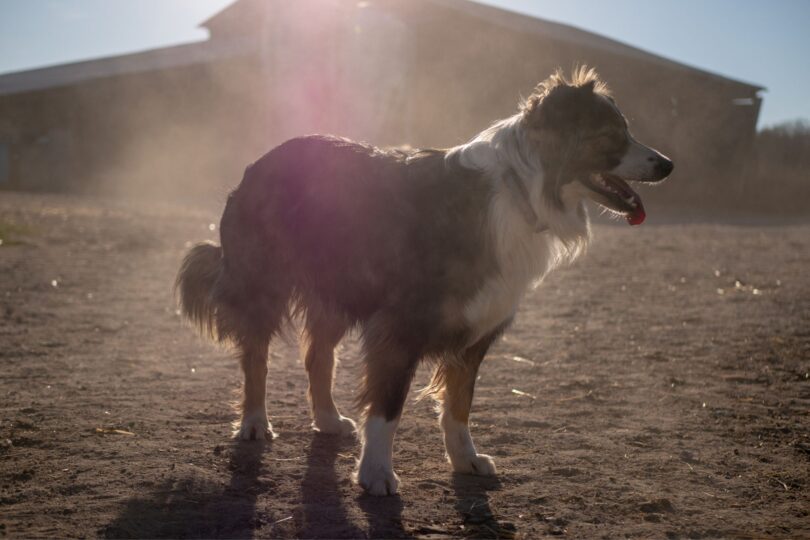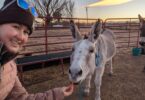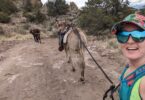Note: This article was originally published on our sister site Love & Let Go.
Dealing With Farm Life and Death
In a perfect world, our cherished farm dogs would live significantly longer. Our treasured pets would stay with us for years and years, with no health problems and all the energy of their younger selves.
Unfortunately we don’t live in such a world. The unpleasant truth is that you will inevitably have to say goodbye to your beloved companion. But how do you know when the end is near?
We’ll discuss 5 common symptoms:
- Fatigue and Lethargy
- Pain and Reduced Mobility
- Incontinence
- Loss of Appetite and Weight Loss
- Isolation and Disinterest
This article also teaches you how to recognize and deal with these signs, as well as how to help your pet have a peaceful ending to their time on this side of the Rainbow Bridge. Finally, you’ll learn how to emotionally prepare for your dog’s passing.
5 Signs Your Dog May Exhibit
Fatigue and Lethargy
Once an excitable pup, your dog may show a lack of energy in his last months or weeks. Even those dogs who are known to follow their owners from pasture to pasture often start picking a singular sun spot and curling up for hours in the barn aisle. Sometimes this may not even be a place they usually lie down, or it may be a more secluded location like an empty horse stall.
Dogs who show these signs may become so tired that they don’t lift their heads or tails in response to stimulus.
What you can do:
- Check with your vet to ensure there isn’t another cause for this behavior.
- Place comfortable blankets in the spots where your dog chooses to rest.
- Provide head and neck support if you’re able to.
- Let your dog have its space and sleep without interruption.
- Give gentle comfort when your dog is awake and seeks you out.
Pain and Reduced Mobility
This is differentiated from extreme fatigue or lethargy in that your dog may still attempt to get up and move around.
What makes this difficult, however, is that a dog who still wants to get up on the bed or go outside with you for chores may not be able to stand up on his own, or will tire long before barn duties are done.
What you can do:
- Speak with your veterinarian about appropriate medications.
- Provide assistance getting up and moving around, as needed.
- Use heat pads to soothe sore muscles and joints.
Incontinence
Many of our pets suffer from incontinence due to old age. While it’s possible that there is an underlying medical condition, sometimes this is simply a part of aging.
It’s important to check with your vet to make sure your dog doesn’t have a bladder infection or bladder stones. Urinating and defecating inappropriately, with no underlying medical cause, can be signs that your dog is nearing the end of its life.
What you can do:
- Ask your veterinarian if medication would help.
- Provide floor potty pads for your dog to use if he cannot make it outside.
- Put in a doggie door (if your dog is still mobile) so he can go in and out whenever he wants to
- Consider a doggy diaper (cloth or disposable pads that help with urine dribble or fecal incontinence)
Loss of Appetite and Weight Loss
Your once ravenous dog may suddenly not be eating as much. It could seem like he shed several pounds overnight.
Dogs nearing their final months and weeks will often have significant changes in appetite. Their gastrointestinal organs are starting to weaken and do not send the right signals to the brain for appetite and thirst.
What you can do:
- Check with your vet to ensure there isn’t another cause for this behavior.
- Provide smaller meals at different frequencies.
- Try serving easily digestible foods like boiled chicken and rice.
- Use a syringe, if necessary, to feed water and broth to avoid dehydration.

Watching for end-of-life signs will help you prepare (Source: Pixabay)
Isolation and Disinterest
One of the surest signs that a dog might be close to passing is when he starts to physically distance himself from his surroundings. He may lose interest in going along for trail rides, getting in the truck, playing, or other things that used to excite him.
Sometimes, dogs will hide in unusual places just to be alone. He may even be irritable when you try to pet him.
What you can do:
- Don’t take it personally—your dog doesn’t mean to hurt your feelings.
- Be gentle and quiet when approaching and handling your dog.
- Only provide petting or comfort if your dog seems open to it.
- Check with your vet to ensure there isn’t another cause for this behavior.
Frequently Asked Questions
Q: What is the average age for a dog to die?
Average life expectancy in dogs varies based on breed (and health factors). Great Danes, for instance, typically only live 8-9 years. Smaller breeds may live longer, into their mid teens.
Generally the average life expectancy for most dogs is 10-15 years.
Q: What’s the longest life span on record for a dog?
A beagle named Butch who died in 2003 was said to be over 28 years old!
Q: How do I cope with my dog’s passing?
Most importantly, try not to suffer alone. Whether you seek comfort from a friend, family member, or even another beloved pet, it’s important that you get support from others.
Also, consider memorializing your pet with a portrait, charm, paw print, or nose print.
Try to Remain Calm
The most important thing you can do if you think your farm dog is close to passing is to contact your veterinarian. She has helped countless families deal with the deaths of their pets, and will know how best to help you in your unique situation.
P.S. If you found this article helpful, check out:
- Barn Dog Pain Solutions 101 (Home Remedies, Holistic, etc.)
- Dogs in Distress: Do Barn Dogs Grieve?
- Preparing for Peace: What it Means to Euthanize a Barn Dog
- Fox Hunting Fidos: Beagle Life Stages and Average Lifespan







